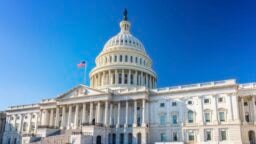The following MBW blog comes from Martin Mills – Chairman, Beggars Group. This week we’ve already heard from Alison Wenham (WIN), Darius Van Arman (Secretly Group) and Matthew Rogers (UNIFIED) on the subject of ‘safe harbour’ laws from the perspective of the independent music community. Here Mills – who like these execs is a board member the Worldwide Independent Network (WIN) – gives his unique view…
Three years ago now I made a speech at the Canadian Music Week conference which was the first time a voice from the record industry had put their head above the parapet on the issue that has now become known as the ‘value gap’.
Since then a tide of protest has swollen into a clamour, and with good reason.
In those three years the audio streaming market has moved centre stage, making the comparison with those services sheltering behind safe harbours all the more acutely painful, and debilitating.
Here’s that speech:
The other imbalance I want to talk about is the safe harbour provisions, and similar terms in other countries. They were introduced, with some foresight, by the legislators in the USA framing the DMCA, to provide a notice and take down procedure for unlicensed content. But the legislation has been distorted into a protective wall behind which cyberlockers and torrent sites, and companies such as YouTube and Facebook operate.
The original intent was to protect reasonable people acting reasonably from falling foul of the law, to enable the digital economy to grow without “gotcha“ law suits against ISP’s who had no idea that their networks were being used for infringement. They were not intended to provide fortress walls behind which companies could build billion dollar businesses on content that had not been cleared.
They were never intended to become a de facto ‘licence’.
To draw an offline analogy, these provisions would allow someone to burgle your house and remove its contents, with their only risk being that if you caught them, they’d have to return them – and maybe apologise. And then, the next morning, do it again. And again. And again.
Copyright is meant to allow you to control your own work. That is totally undermined when another law says that people in effect can ignore it with impunity. Would we consider a safe harbour law allowing small restaurants to ignore food hygiene laws? Or a safe harbour for personal data being inappropriately used? Of course not.
“To draw an offline analogy, these provisions would allow someone to burgle your house and remove its contents, with their only risk being that if you caught them, they’d have to return them – and maybe apologise. And then, the next morning, do it again. And again. And again.”
As you might imagine, policing the YouTubes of this world for infringing content is a herculean task, one beyond the reach of all but the largest companies. For my community, the independents, it’s a game of whack-a-mole they can only lose.
These provisions are being abused. Many of the companies taking advantage of them are not start-ups that need a break, they dwarf everyone in this room. They’ve been in business long enough to now be able to identify that content. They know what it is.
They should not need that protection any more. Those provisions hobble creators, and they give those that use them an unfair competitive advantage over companies such as Apple Music, Spotify, Amazon and Deezer who DO pre-licence content. Google says that safe harbours have been crucial not only to them but also to every other internet company. That’s not true. And Youtube says it’s paid out a billion dollars to music rights owners – but so has Spotify, from one thirtieth as many users.
That economic discrepancy is because of the unreasonable economic advantage YouTube, Facebook and many other services operating under so called ‘safe harbour’ have over other digital service competitors because of their use – or abuse – of the safe harbour provisions.
The American government is increasingly looking at reforming copyright laws. As long as that reform creates a balance between strengthening copyright and allowing investment in the creative world, and adapting it to a world never envisaged, I support that intention. But I believe part of that change must be to remove the safe harbour loophole. We are at the point at which notice and take down must become notice and stay down.
So in three years there is zero improvement, and this is now acting as a crippling brake on the growth of the properly licensed market.
The problem remains simple – services such as YouTube have our music, whether we choose to license them or not. And if we don’t, we don’t get access to content management tools, so we have to endure an unlicensed uncontrollable free-for-all.
They say they’re like radio, but of course they’re not at all, because they’re on-demand. They say they bring users into the licensed eco-system, but at such a paltry return that they might as well be in the pirate world.
A look at our artists’ income from streaming makes the point irrefutably.
Many of our artists now make over 50% of their income from us from audio streaming, whilst they make less than 2% from video streaming – from far more users.
How can that be fair, sustainable and permissible?Music Business Worldwide





